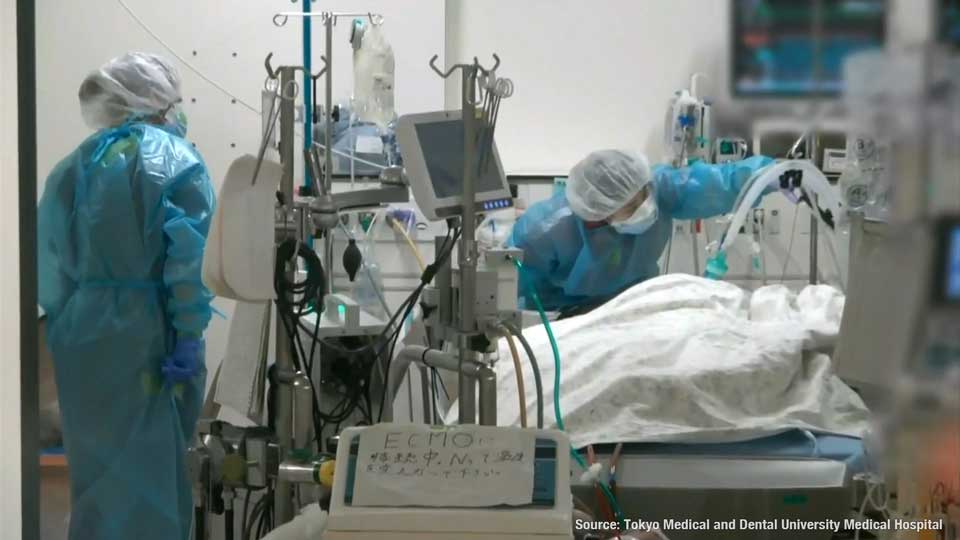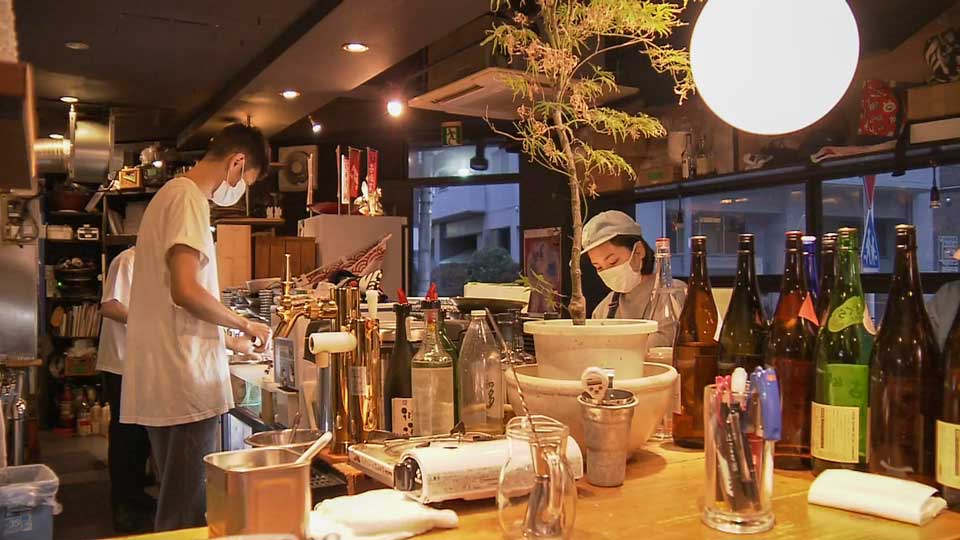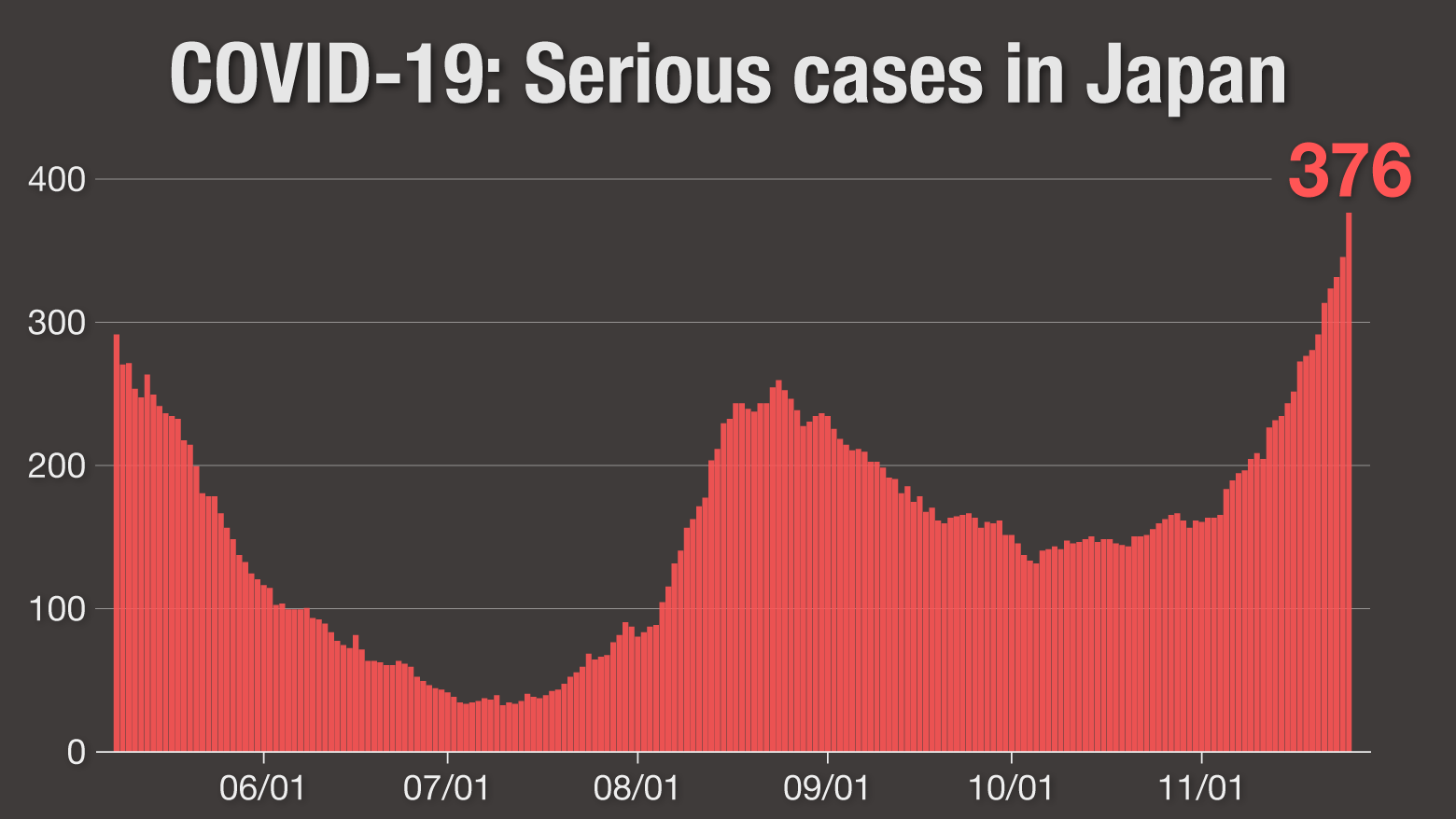The president of the Japan Medical Association, Nakagawa Toshio, expressed a strong sense of alarm on Wednesday. He said that medical care systems were nearing collapse in many parts of Japan. He also said that if the number of people infected increases rapidly, it will be difficult to balance care for them with providing hospital beds to other patients.
The JMA is urging prefectural governors to look ahead two weeks and make appropriate plans with the central government.

Tokyo Medical and Dental University Medical Hospital has opened up 55 beds exclusively for COVID-19 cases. Less than half are occupied.
However, the hospital has been forced to start turning away serious cases. Of the 55 beds, eight are designated for patients who need ventilators or ECMO support for respiratory and cardiac functions. Seven are currently in use — the most the hospital staff can manage at one time as each serious case requires the care of several doctors and nurses.
The Tokyo Metropolitan Government plans to double the city's total number of beds available for serious cases to 300. But the hospital says all it can do now is operate with the current number, considering the size of the staff and the fact that there are also other patients who need medical attention.
"It's not just a matter of actual beds for seriously ill patients," hospital president Uchida Shinichi says. "Each case requires specially trained staff as well."
He is calling on other hospitals to help shoulder the burden and accept more serious cases.
Third call to close early
On Wednesday, the metropolitan government called on bars, restaurants and karaoke parlors in Tokyo's 23 wards and the Tama area to close at 10 pm. The measure will be effective for 20 days, from November 28 to December 17, and operators who comply with the request will receive up to about 3,800 dollars.
This is the third time the metropolitan government has asked businesses to voluntarily reduce operating hours. The first time was in April, when a state of emergency was declared; the second in August, when infection numbers began climbing again.
Tokyo Governor Koike Yuriko said infections must be stopped from spreading any further while also minimizing the impact on economic and social activities. She said Tokyo citizens, business operators and administrators must come together to focus on infection-prevention measures during this short period.

Critical three weeks
The government advisory panel on the coronavirus response held a session on Wednesday, at which experts submitted a set of proposals for stronger countermeasures.
They include asking prefectural governments to immediately identify areas where the infection is spreading rapidly and to deploy intensive countermeasures there for about three weeks. The experts also urged people to refrain from traveling to or from the areas.
Nishimura Yasutoshi, the minister in charge of the coronavirus response, pointed out that the panel is communicating a strong sense of crisis. He said the coming three weeks are critical in curbing the spread of the virus.
The government says it is balancing steps to prevent infections against the continuation of social and economic activities. It wants to avoid the situation reaching the highest alert level, which could lead to another state of emergency.
There were more than 1,900 new cases reported across the country on Wednesday. Over 138,000 people have tested positive since the outbreak began, with the death toll now exceeding 2,000.


